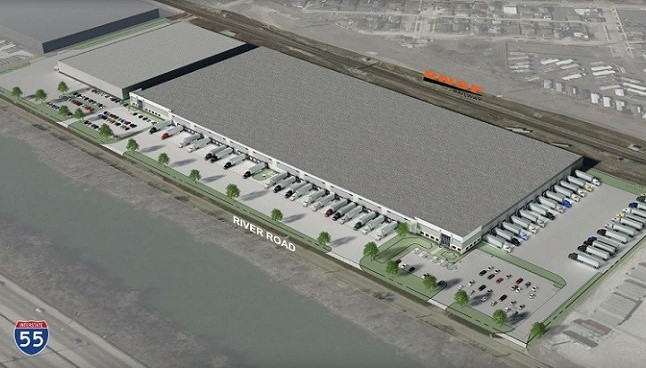 6600 River Rd. in Hodgkins, IL, part of the dense infill sections within the Chicago region's I-55 submarket.
6600 River Rd. in Hodgkins, IL, part of the dense infill sections within the Chicago region's I-55 submarket.CHICAGO—Even though many investors see potential threats looming over the industrial market, most still feel confident it has “plenty of runway left,” and continue buying up properties in the Midwest and across the US, according to a new Industrial Investor Sentiment Report from Real Capital Markets and SIOR.
“The industrial market and those who invest in it, have enjoyed an incredible, long run because of its ability to adapt to the needs of specific users and subsectors, and embrace the ongoing evolution of the global economy,” says Tina Lichens, chief operating officer, Real Capital Markets. “Given this performance and consistency, we have every reason to believe there is plenty of runway left.”
The potential threats are many, ranging from rising interest rates, new tariffs imposed by the Trump administration, and a diminishing supply of quality assets. However, none of these worries has changed investors' general view that Industrial assets are stable investments that provide significant long-term value for investors.
“The industrial sector has risen to the top of many investors' wish lists and is seen as a strong long-term investment and a safe haven against global currency and market fluctuations,” says Erik Foster, principal and leader of Avison Young's Chicago-based national industrial capital markets group, and one of the specialists interviewed for the report.
Among the key Midwest findings include:
- An increase in demand for local, regional, and national e-commerce fulfillment, especially in centrally-located cities such as Chicago, Columbus and Indianapolis, that have populations of more than 500,000.
- Last mile warehousing as a growing focus for investors in the Midwest, mirroring activity seen across the country.
A few years ago, one of the best bets in the industrial market was a massive, new class A distribution facility. Today, however, attention has shifted to smaller facilities within the urban core, as users want to be as close as they can to population centers. Fifty-two percent of market experts surveyed for the report view these last mile/in-fill development product as the most highly-sought after opportunities.
“The first order of business for anyone interested in providing same-day or next-day delivery is to figure out how to serve the critical mass of consumers in any urban environment or location, starting with the biggest tier one cities and then working down the list from there,” says Geoffrey Kasselman, executive managing director with Newmark Knight Frank in Chicago.
Grocery and food delivery services find last mile properties particularly important. Amazon's acquisition of Whole Foods transformed this sector, and many other retailers, such as Walmart and Kroger, began offering delivery services that require last mile facilities to fulfill same-day and next-day orders. But it's a challenge finding infill sites with suitable parking and docking features.
“E-commerce is evolving daily and everyone is trying to find the best way to deliver products and grow market share, which is fueling a lot of the industrial activity,” says Steve Poulos, chief executive officer and co-founder of Chicago-based Bridge Development Partners, which focuses on last mile and other industrial development.
© 2025 ALM Global, LLC, All Rights Reserved. Request academic re-use from www.copyright.com. All other uses, submit a request to asset-and-logo-licensing@alm.com. For more information visit Asset & Logo Licensing.








